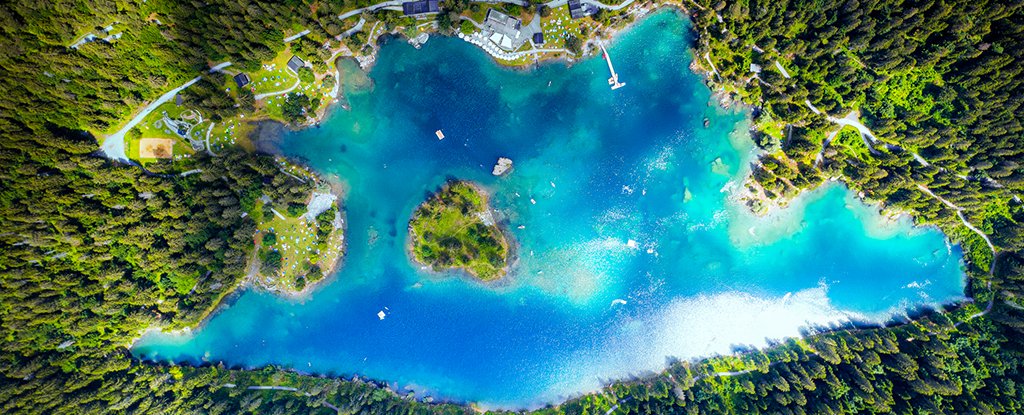Products You May Like
For most life forms on Earth, oxygen is a necessity, not an optional extra – and because of our warming planet, oxygen is quickly disappearing from our freshwater lakes, putting aquatic life and ecosystems under threat.
Researchers looked at samples and measurements taken from 393 lakes in temperate areas of the globe across a period from 1941 to 2017, finding a widespread decline in dissolved oxygen in both surface and deep water habitats.
That change in oxygen levels has a knock-on effect, all the way from the biogeochemistry of the water to the health of human populations who may rely on these lakes. It could also lead to increased greenhouse gas emissions from aquatic bacteria that produce methane.
“All complex life depends on oxygen,” says environmental biologist Kevin Rose, from the Rensselaer Polytechnic Institute. “It’s the support system for aquatic food webs. And when you start losing oxygen, you have the potential to lose species.”
“Lakes are losing oxygen 2.75-9.3 times faster than the oceans, a decline that will have impacts throughout the ecosystem.”
Across more than 45,000 profiles of water temperatures and dissolved oxygen, the researchers found an average drop of 5.5 percent in dissolved oxygen in surface waters over the last four decades. That’s down to simple physics: as the increasingly warm air heats the top layers of the lake, gases have a harder time dissolving in the warmer water.
The average drop of 18.6 percent in dissolved oxygen in deep water over the same time period has a different explanation. While temperatures haven’t changed here, less mixing of water layers is taking place as the surface stays warmer for longer. This stratification is happening in the oceans too.
In a subset of lakes – around a quarter of the total sample – scientists found both increases in temperature and oxygen. The likely explanation is that these lakes are dominated by cyanobacteria blooms caused by nutrient rich run-off from farms and urban areas, which are producing their own oxygen.
“Lakes are indicators or ‘sentinels’ of environmental change and potential threats to the environment because they respond to signals from the surrounding landscape and atmosphere,” says aquatic ecologist Stephen Jane, from the Rensselaer Polytechnic Institute.
“We found that these disproportionally more biodiverse systems are changing rapidly, indicating the extent to which ongoing atmospheric changes have already impacted ecosystems.”
Lakes account for just around 3 to 4 percent of Earth’s non-glaciated surface, yet they are recognized as particularly rich ecosystems that provide habitat and vital resources for countless species (including humans). Diminishing oxygen supplies threaten not just the aquatic species within the lakes, but these biodiverse systems and their food webs as a whole.
What’s more, as oxygen levels drop, it allows numerous types of methane-emitting bacteria to move in – as these lakes emit more greenhouse gases, the global warming effect is perpetuated, and the cycle continues.
It’s an even bleaker situation than the one we’re seeing happen with the planet’s oceans, and the researchers think it could be just the start in terms of oxygen depletion. The only positive is that with more data and more information on the seriousness of the problem, we can take more effective measures to counter it.
“Ongoing research has shown that oxygen levels are declining rapidly in the world’s oceans,” says Curt Breneman, dean of the School of Science at the Rensselaer Polytechnic Institute, who wasn’t directly involved in the research.
“This study now proves that the problem is even more severe in fresh waters, threatening our drinking water supplies and the delicate balance that enables complex freshwater ecosystems to thrive.
“We hope this finding brings greater urgency to efforts to address the progressively detrimental effects of climate change.”
The research has been published in Nature.
